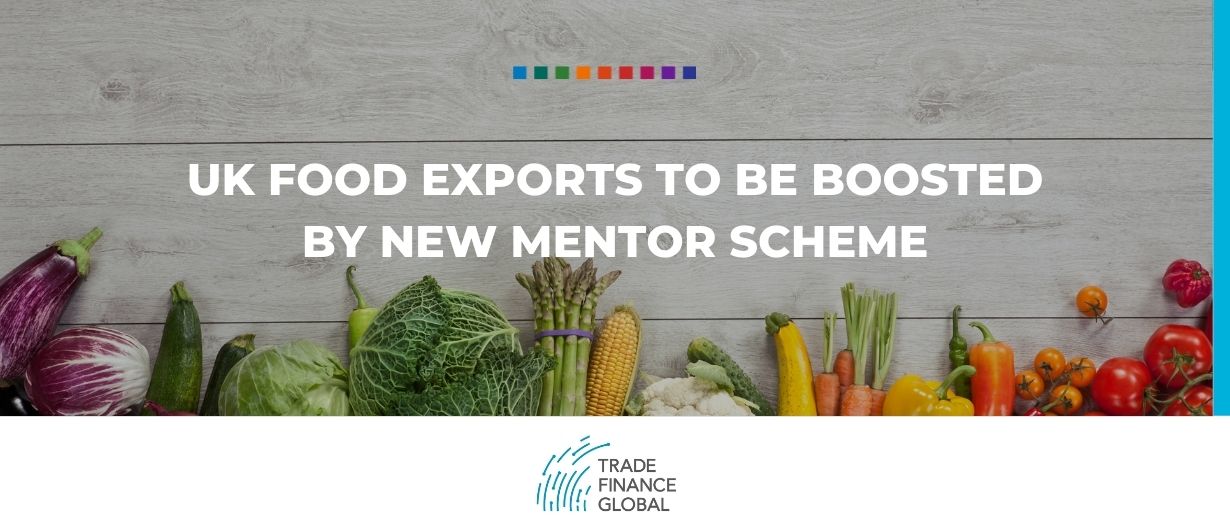Department for International Trade (DIT) launches new mentorship programme to help UK farmers and food producers boost their exports.
The programme, run in partnership with Agriculture and Horticulture Development Board (AHDB), and the National Farmers Union (NFU), will match experienced exporters with businesses who are looking to export for the first time.
From a cheese exporter in Somerset to a lamb and beef supplier in Scotland, the mentoring programme represents farmers and food producers from across the UK. The mentors will give practical help and advice to would-be exporters through roundtables, mentoring sessions and newsletters.
New trade deals will help reduce tariffs, support jobs and open doors to new markets. Devon cheesemaker Quickes’ is already taking advantage of the USA’s decision to suspend 25% tariffs on British cheese and will be sharing their exporting tips with other dairy producers as part of the mentor scheme.
UK cheese exports to Australia currently face tariffs of up to 20% and slashing this tariff could be a major boost to companies like Somerset cheese exporter, Somerdale, who’ve been supplying British cheese to the Australian market for 15 years. A UK–Australia trade deal, which is expected to be agreed later this month, could have significant tariff–free benefits for our world leading food and drink industry.
There is global demand for British agriculture, food and drink businesses, with the UK exporting £21.7 billion worth of food and drink in 2020. By 2030, two-thirds of the world’s middle classes will be in Asia, creating new export opportunities for British farming.

Secretary of State for International Trade, Liz Truss, said:
“We are determined to help UK farmers make the most of the new trade deals we’re striking across the world. This new mentor programme matches experienced exporters with our brilliant farmers and food producers to help them open even more doors to the fastest-growing consumer markets.
UK farmers are at the heart of our trade policy, and we are working in lockstep with partners like the AHDB, the NFU to unleash our global exporting potential and fly the flag for British food and drink.
“We’re seizing new opportunities around the world as an independent trading nation in huge markets such as Australia while paving the way to prosperity across the UK.”

Minister for Exports, Graham Stuart, said:
“It’s not enough to open doors for UK farmers and food producers through trade deals – we want to make sure new businesses actually follow in the footsteps of those who are already exporting successfully. That’s why I’m delighted to launch our agri-mentoring scheme which will see leading figures from all corners of the UK offer their help to those just starting out.
Businesses which export are more innovative, more productive and pay higher wages. Our agri-mentoring scheme will create more of them and it’s wonderful that industry leaders like Mary Quickes are volunteering to ensure that our trade deals are converted into more trading success.”

Mary Quickes, Managing Director at Quickes Farm said:
“Exporting offers good opportunities to small food producers to grow their sales. It’s great to see DIT support and assistance to navigate some of the hurdles involved.
I look forward to mentoring British farmers and helping them on their exporting journey!”

AHDB International Market Development Director Dr Phil Hadley said:
“The new agri-mentoring scheme is another great example of industry and government working together to help our farmers and food producers take full advantage of new opportunities overseas.
This scheme allows businesses to share their expertise and knowledge with would-be exporters and equip them with the tools they need to sell their products around the world. It will provide huge benefits to UK farmers who work tirelessly to produce high quality food whilst also allowing mentors to help shape new exporters to meet the growing global demand for British agriculture.”
Working in close partnership with industry, the government’s mentor programme will give farmers and producers the tools and knowledge they need to start selling their produce internationally. The first round of unpaid mentors will focus on diary and red meat, however seafood and packaged/processed food mentoring programmes will follow later in the year.

The scheme is part of DIT’s new strategy to boost agriculture exports into new markets, as 97% of the food and drink sector are SMEs but only 1 in 5 of food and drink businesses export. Our latest research estimates that 6.5m jobs were supported by exports in 2016, and we also know that exporting businesses are typically more productive.
Earlier this year DIT and industry launched a new campaign, Open Doors, to encourage food producers to take advantage of opportunities in fast-growing markets like the Indo-Pacific region and beyond. New opportunities like this could mean more money for farmers across the UK, which they could use to invest in their staff, their business and future.
DIT has secured trade agreements covering 67 countries plus the EU, worth £891bn of trade in 2019. Opening more doors for UK businesses, we are also seeking ambitious deals with the US, Australia and New Zealand, aligning with like-minded allies and applying to join CPTPP.

































